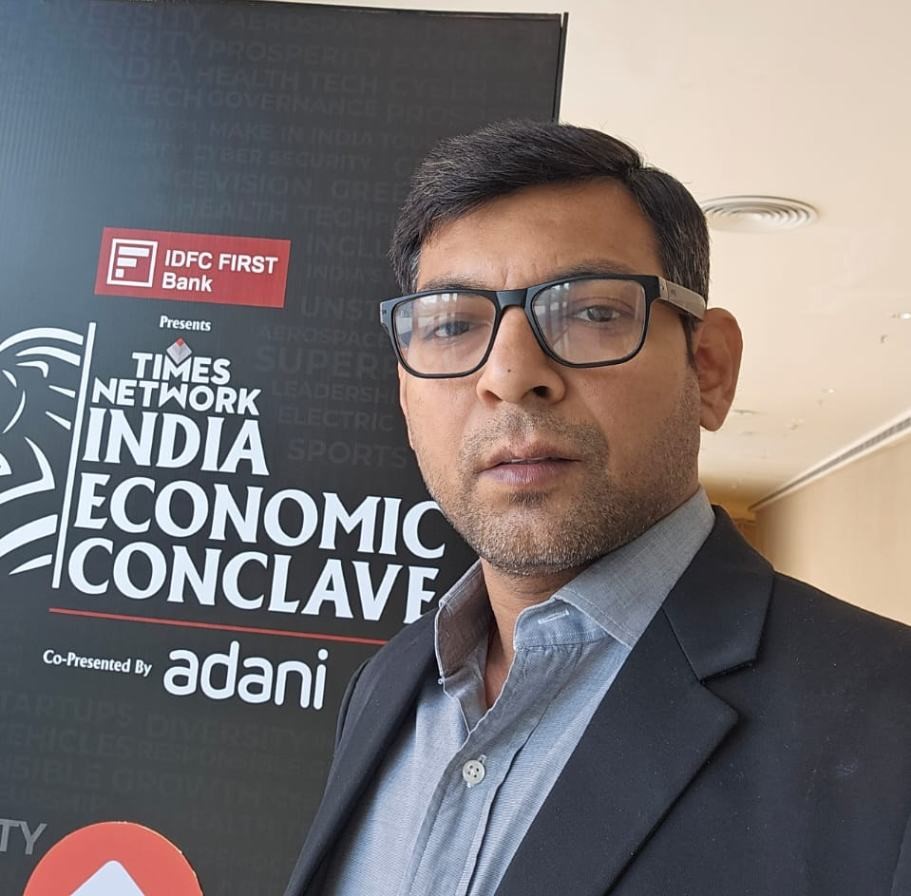Vinay Kumar Tripathi: Pioneering Generative AI and Agile Transformation in India’s Tech Landscape
4 min read
New Delhi, India—In the rapidly evolving world of artificial intelligence (AI) and agile project management, few professionals have bridged the gap between innovation and execution as effectively as Vinay Kumar Tripathi. With over 16 years of global IT experience spanning the U.S., UK, Europe, and India, Tripathi—currently an Associate Director of Development specializing in Generative AI and automation—has emerged as a key architect of technological advancements reshaping industries from finance to human resources.
Generative AI: A Catalyst for Disruption
Generative AI, a branch of AI that creates text, code, and predictive models, has become a linchpin of modern digital strategy. Tripathi’s expertise in this domain has positioned him at the forefront of developing tools that streamline operations, enhance decision-making, and personalize user experiences. His work includes pioneering AI-driven platforms for real-time market analysis and employee benefits optimization, technologies that align with India’s push to become a global AI powerhouse.
According to NASSCOM’s 2023 report, India’s AI market is projected to reach $15 billion by 2025, driven by demand for ethical and scalable solutions. Tripathi emphasizes that Generative AI’s value lies in its ability to augment human capabilities rather than replace them. “The goal is to build systems that empower businesses to act on data-driven insights while maintaining agility,” he remarked during a recent tech summit.
One of his notable contributions includes designing multilingual AI models tailored to India’s linguistic diversity, a critical step in democratizing access to technology for non-English-speaking populations. These innovations are particularly relevant as the government prioritizes inclusive growth under its ‘Digital India’ initiative.
Agile and Scrum: Revolutionizing Team Dynamics
A certified Scrum Professional and PRINCE2® practitioner, Tripathi has been instrumental in transitioning traditional IT teams to agile frameworks. His approach—rooted in iterative development and cross-functional collaboration—has reduced project delivery timelines by up to 30% in organizations he’s led. By conducting workshops on user story mapping and backlog prioritization, he has dismantled siloed workflows, fostering environments where innovation thrives.
“Agile isn’t just a methodology—it’s a cultural shift,” Tripathi explained during a keynote at the 2023 Global Tech Leadership Summit. “Teams must embrace adaptability and accountability to stay competitive in today’s market.” His strategies have also addressed a persistent challenge in India’s tech sector: bridging communication gaps between technical and non-technical stakeholders. Through storytelling sessions and team-building exercises, he has cultivated alignment between developers, clients, and executives.

Global Expertise, Local Relevance
Tripathi’s career spans leadership roles in multinational firms, including a decade-long tenure at a prominent IT services company in London, where he managed large-scale automation projects. This international exposure has equipped him with insights into diverse regulatory landscapes, which he now applies to India’s evolving tech ecosystem. For instance, his AI models incorporate compliance with the Digital Personal Data Protection Act (2023), ensuring privacy without sacrificing performance.
His global perspective also informs his mentorship programs. Having trained over 200 professionals in AI ethics and agile practices, Tripathi stresses the importance of balancing technical prowess with soft skills. “India’s talent pool is exceptional, but nurturing creativity and problem-solving is equally vital,” he told India Prime Times.
From Technical Writer to Thought Leader
Beyond his corporate roles, Tripathi is an advocate for knowledge-sharing. His book, Navigating the Agile-AI Nexus (2022), explores strategies for integrating AI projects with agile frameworks—a topic gaining traction as Indian enterprises accelerate digital transformation. As a blogger and technical writer, he frequently addresses AI governance, ethical challenges, and the future of work.
He is particularly vocal about the need for ethical AI frameworks. “Bias mitigation and transparency aren’t optional—they’re foundational to sustainable innovation,” he wrote in a recent op-ed. His advocacy aligns with global movements urging stricter AI regulations, including the European Union’s AI Act and India’s proposed guidelines for responsible AI deployment.
The Road Ahead: AI for Inclusive Growth
As India strides toward its goal of a $1 trillion digital economy by 2030, Tripathi’s work highlights the synergy between cutting-edge technology and societal impact. Current projects under his leadership include AI platforms aimed at upskilling rural workforces and tools to simplify compliance for SMEs. These initiatives mirror national priorities, such as bridging urban-rural tech divides and supporting MSMEs through affordable automation.
Industry analysts predict that AI-agile hybrid models will dominate India’s tech narrative in the coming decade. For Tripathi, the focus remains on sustainable progress. “The future belongs to organizations that innovate without compromising their ethical compass,” he asserted.
Conclusion
Vinay Kumar Tripathi’s journey—from test engineer to Generative AI visionary—underscores the transformative power of blending technical expertise with leadership acumen. His contributions to agile transformations and ethical AI reflect a broader shift in India’s tech sector, where innovation is increasingly measured by its societal impact as much as its commercial success.
As the nation navigates the challenges and opportunities of AI-driven growth, professionals like Tripathi offer a blueprint for harnessing technology as a force for inclusive, equitable progress.




